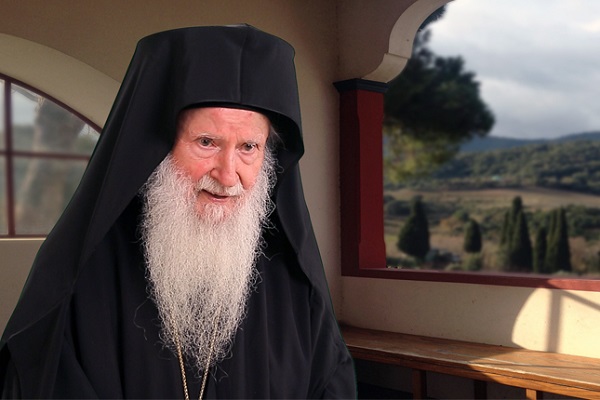Sermon on the Apostolic Reading for the Sunday of the Myrrh-Bearers (Acts 6: 1-7)
15 May 2021Today’s reading from the Acts of the Apostles describes the philanthropy of the first Church of Jerusalem. With the election of the seven Deacons, the Holy Apostles demonstrated their care for the poor and the sick. Despite the daily persecution, they never lost sight of love for those who were hungry and destitute. As a result of this focus, the Christian faithful were moved to solidarity, and shared their belongings with each other held in common (see Acts 2:44-45). In doing this, those who were hungry or destitute were able to find relief.
 As the number of Christians increased, the Apostles found that more help was necessary in serving the people, in order to maintain their mission of spreading the Gospel. They assembled the faithful and said: “brethren, seek out from among you seven men of good reputation, full of the Holy Spirit and wisdom, whom we may appoint over this business” (see verse 3). And it happened, that these seven men were ordained Deacons and took over the charity work of the Church. The first among these Seven Deacons was Stephen, who was distinguished in particular and called to bear witness to Christ with his martyrdom.
As the number of Christians increased, the Apostles found that more help was necessary in serving the people, in order to maintain their mission of spreading the Gospel. They assembled the faithful and said: “brethren, seek out from among you seven men of good reputation, full of the Holy Spirit and wisdom, whom we may appoint over this business” (see verse 3). And it happened, that these seven men were ordained Deacons and took over the charity work of the Church. The first among these Seven Deacons was Stephen, who was distinguished in particular and called to bear witness to Christ with his martyrdom.
We can see from the start, in imitation of our Lord Jesus Christ, that the first Christians were very interested in not only the spiritual aspect of life, but the material. As the Church grew and spread out in the world, it set up a system to distribute these offerings. The first organized Hospital in history was founded by Saint Basil the Great, Archbishop of Caesarea in Cappadocia. This complex was not only a hospital, but also a house for the poor, an Orphanage and a guest house for travellers. Named “the Basiliada,” this system of charity is but one historical example of the work the Church has done and continues to do in our own times. In order to get a clearer picture of the work the Orthodox Church does in the world, we can look at the Church of Greece as an example. In 2017, there were 98,731 Charity Institutions; 1,146,772 people received assistance at the cost of 124,416,599 Euros. This is just in Greece alone. Imagine what is being done in the other Orthodox Churches!
On the parish level, we may not be able to do as much, but that is no excuse to just throw up our hands and do nothing. As a community, and as individuals, we can make a difference and do something to help those who may be struggling. We can take the example of the Holy Apostles, and designate people to do this as well. A parish can set up a Commission that will be responsible for managing the offerings of the community, whether it is money or directing volunteer work to help the people who are suffering. This act of love cannot be measured in terms of numbers, be it monetary or by people. What is important is that we are doing something, as much as is possible for us to do. Remember, The Lord praised the widow who had offered only two mites (see Mark 12:42). We also know, that when our Lord Jesus Christ returns in the Second Coming, he will ask us what we did for the sick, the hungry and the poor. So in offering this love to others, we are the first to benefit.
My brothers and sisters, let us keep in mind those who are in need and seek concrete ways to help them. In this way we can imitate the first Christians of Jerusalem, who in their actions proclaimed themselves one spiritual family.






